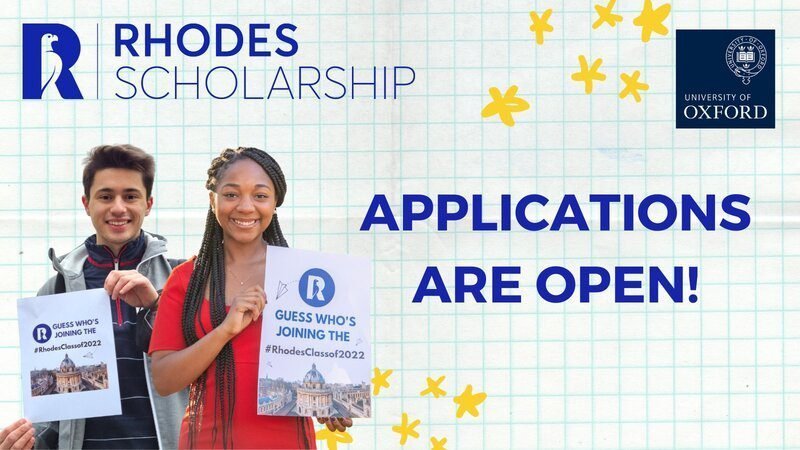Introduction: Are IELTS and GRE Really Necessary in 2025?
Let’s be honest—standardized tests like the IELTS and GRE have become major barriers for students dreaming of a fully funded PhD abroad. Whether it’s the cost, limited test centers, or the fear of poor performance, many aspiring scholars feel stuck.
But here’s the good news: you can still earn a fully funded PhD in 2025 without writing the IELTS or GRE.
Universities across Canada, the USA, and beyond are rethinking admissions criteria, especially after the pandemic. Many now accept alternative proofs of English proficiency or waive standardized tests altogether.
This guide walks you through:
- PhD programs that don’t require IELTS or GRE
- How to prove English proficiency without IELTS
- Fully funded opportunities you can apply for
- Legit universities and key eligibility info
- How to avoid scams and pitfalls
Let’s explore your no-test-required path to a prestigious PhD.
Why Are Universities Ditching IELTS and GRE?
Standardized tests have long been the “gatekeepers” of graduate education. But in recent years, universities have started seeing them differently.
Here’s why many institutions are saying no more:
- COVID-19 disruptions made tests inaccessible
- Bias concerns over standardized testing
- Greater focus on research proposals, GPA, and experience
- Diversity and equity goals favor holistic admissions
- Proof of English from prior education is often enough
According to ETS, over 1,000 graduate programs in the USA have dropped the GRE requirement. And many Canadian universities already assess English through prior academic instruction in English-speaking countries.
Who Can Benefit from These Programs?
Fully funded PhD programs without IELTS or GRE are a golden opportunity for:
- International students from Africa, Asia, Latin America
- Canadian and US students seeking admission without retesting
- Students with strong academic or research backgrounds but weak test scores
- Individuals who cannot afford expensive prep and registration fees
The doors are opening wider—if you know where to look.
Top Fully Funded PhD Programs (2025) with No IELTS or GRE Required
Below is a comparison table showing top programs where you can apply without IELTS or GRE. These programs are also fully funded, meaning tuition, living stipend, and research support are covered.
| University | Country | Fields | Funding Type | Test Waiver Info |
|---|---|---|---|---|
| University of British Columbia | Canada | STEM, Humanities | Full tuition + $18K+ stipend | IELTS waived for English-instruction grads |
| University of Toronto | Canada | Engineering, Social Sciences | $20K+ funding | No GRE; IELTS waiver available |
| University of Alberta | Canada | Computer Science, Economics | Fully funded | Accepts alternative proof of English |
| Stanford University | USA | Sciences, Education | Fellowship-based | No GRE required for many departments |
| University of Chicago | USA | Humanities, Policy | Fully funded packages | GRE optional |
| University of Manitoba | Canada | Agriculture, Health | Graduate research assistantships | IELTS not needed with English degree |
| University of Arizona | USA | Geosciences, Public Health | Full fellowships | GRE permanently dropped in most programs |
💡 Note: Always confirm with your department or faculty. Waiver policies vary within the same university.
Alternatives to IELTS: How Else Can You Prove English Proficiency?
Many students mistakenly assume that without IELTS, they have no shot. But universities offer several alternatives:
Common Alternatives Accepted:
- A bachelor’s or master’s degree from an English-taught program
- Letters from your previous university confirming English instruction
- Scores from other tests like TOEFL, Duolingo, PTE (often easier than IELTS)
- Interview-based assessments by the department
For example, the University of Alberta explicitly states that students with prior education in English-speaking countries may be exempt from submitting language scores.
See their language requirements here.
What Does “Fully Funded” Really Mean?
Not all “fully funded” offers are created equal. Let’s break it down:
Most common funding components:
- Tuition waiver (no out-of-pocket cost)
- Monthly stipend ($15,000–$35,000/year depending on the country)
- Health insurance (included in many U.S. programs)
- Research or travel grants
- Teaching/research assistant roles
These funding packages are designed so you can focus on your research—not worry about rent.
Pros and Cons of No-IELTS, No-GRE Programs
| Pros | Cons |
|---|---|
| Easier and faster application process | Some programs still prefer test scores |
| Saves $200–$500 in testing fees | More emphasis on academic documents |
| No test anxiety | Competition is higher |
| Accessible from countries with test center issues | Requires detailed SOP and references |
Being “test-free” doesn’t mean “effort-free”—you still need a solid research proposal and academic record.
What Makes Your Application Stand Out Without IELTS or GRE?
To gain an edge, focus on the parts of your application that matter most when test scores are off the table:
🔑 Strengthen these areas:
- Statement of Purpose (SOP) – clear, passionate, and customized
- Strong letters of recommendation
- Published papers or relevant academic work
- CV with academic awards or internships
- Research proposal aligned with the department’s interests
Universities often judge applicants more holistically when tests are waived—so your voice matters more than ever.
Red Flags: Spotting Fake “No Test” PhD Offers
Unfortunately, many scams target hopeful PhD applicants with “no IELTS, no GRE, fully funded” promises.
Watch out for:
- Application fees over $100 without clear justification
- Emails from unverified domains
- No faculty or research group details
- No mention of visa support or funding documents
Always cross-check offers with official university websites. A reliable directory also helpful for verified PhD listings.
How to Apply: Step-by-Step Guide for 2025 Admissions
- Identify universities with no IELTS/GRE requirements
- Visit the graduate school and department page
- Review funding packages and supervisor availability
- Reach out to potential advisors with a brief, focused email
- Gather academic transcripts, CV, SOP, and references
- Apply through the university’s online portal
- Track and respond to interviews or offer emails promptly
Even without standardized tests like IELTS or GRE, you can still get accepted into fully funded PhD programs—if you follow a smart and organized approach. Here’s a deeper dive into each crucial step of the application process:
1. Identify Universities with No IELTS/GRE Requirements
Your first mission is to shortlist universities that don’t require IELTS or GRE for admission.
Here’s how to find them:
- Use keywords like “fully funded PhD without GRE 2025” or “IELTS waiver universities in Canada/USA” in your search
- Focus on departments, not just institutions. Many universities allow each department to set its own testing rules
- Look for universities that accept medium of instruction letters in place of IELTS
- For GRE, prioritize departments that label it as “optional” or “not required”
✅ Examples: University of Toronto, University of Alberta, Stanford University, and many Ivy League schools have dropped the GRE in multiple PhD programs.
2. Visit the Graduate School and Department Pages
Once you’ve found a potential university, head straight to the official website.
Focus on:
- Graduate school admissions page: for general requirements
- Department-specific PhD page: for program-specific expectations
Look out for:
- Application deadlines
- Language waiver policies
- GRE requirement status
- Admission FAQs
This step is vital to cross-check outdated information often found on third-party websites.
3. Review Funding Packages and Supervisor Availability
Remember, your goal is not just to get in—but to get fully funded.
Here’s what to check:
- Does the program offer tuition waivers + stipend?
- Are there assistantships (Teaching or Research) available?
- Are faculty members accepting new PhD students for 2025?
Check the faculty directory and the lab pages. Look for terms like:
- “Seeking new PhD students”
- “Open positions for Fall 2025”
- “Funding available through research grants”
💡 Pro tip: Many STEM supervisors fund PhDs from research grants even if the department doesn’t list “fully funded” openly.
4. Reach Out to Potential Advisors with a Brief, Focused Email
This is your make-or-break moment.
Craft a short and professional email that includes:
- A subject line like: “Prospective PhD Applicant – Fall 2025 – Interest in [Research Topic]”
- A brief intro (name, country, academic background)
- Your specific research interest and how it aligns with their work
- A link to your CV (Google Drive or PDF attachment)
- A polite request to know if they are accepting students
Don’t: Write a generic email.
Do: Personalize every message using the professor’s name and research area.
5. Gather Academic Transcripts, CV, SOP, and References
Now it’s time to prep your documents.
You’ll typically need:
- Transcripts: From all post-secondary institutions attended
- CV/Resume: Tailored for academic applications (include research, publications, and awards)
- Statement of Purpose (SOP): Your motivation, background, and research goals
- Recommendation Letters: From 2–3 academic referees, ideally supervisors or professors
💡 Bonus Tip: If you’re applying without IELTS, ask your previous institution for a medium of instruction letter to attach with your documents.
6. Apply Through the University’s Online Portal
Once everything’s in place:
- Create an account on the university’s graduate application portal
- Fill in your details carefully
- Upload all required documents in the correct format (PDF, JPEG, etc.)
- Pay the application fee (if applicable) or look for fee waiver options
Many US and Canadian universities now accept document uploads via portals rather than mail.
Don’t wait till the last minute—early applications have a better chance, especially for funding!
7. Track and Respond to Interviews or Offer Emails Promptly
After submission, monitor your email daily.
Some universities:
- Send a PhD interview invitation (via Zoom or phone)
- Request additional documents
- Notify you of shortlisting or waitlist status
✅ Be prepared to:
- Discuss your research proposal confidently
- Ask smart questions about the lab or funding
- Express your commitment to the program
Once you receive an offer:
- Accept it through the portal
- Begin visa processing and relocation planning
Final Tip: Stay Organized
Use a simple tracking sheet or Notion board to record:
- Universities and programs
- Application deadlines
- Response status
- Advisor contact info
- Interview dates
- Offer letters and funding status
📌 Organization saves your sanity—and boosts your chances.
Real cases:
Example: Fatima’s PhD Journey Without IELTS or GRE
Fatima, a student from Nigeria, applied to University of Manitoba in 2023. Her undergraduate program was entirely in English.
Despite having no IELTS or GRE, she was accepted into a fully funded Agricultural Sciences PhD based on:
- Her published undergraduate thesis
- A recommendation letter from a former supervisor
- A customized SOP aligning with her advisor’s project
In 2025, more success stories like hers are expected.
Best Countries Offering No-Test Fully Funded PhDs (2025)
| Country | Test Waiver Friendliness | Funding Strength | Top Universities |
|---|---|---|---|
| Canada | ✅ High | ✅ Strong | UBC, Alberta, Toronto |
| USA | ✅ Growing | ✅ Very strong | Stanford, Chicago, Cornell |
| Germany | ✅ Often waived | ✅ Strong (DAAD) | Heidelberg, TU Munich |
| Norway | ✅ Always waived | ✅ Tuition-free + stipends | Oslo, Bergen |
| Netherlands | ✅ Research-focused | ✅ Good | Maastricht, Leiden |
These countries value research capability over test results—especially for PhD-level studies.
Final Thoughts: No Tests, No Limits
If you’ve ever thought “I could get in, but the tests are holding me back”—this is your year.
With a rising number of universities shifting toward test-optional and test-free admissions, your path to a fully funded PhD in 2025 is no longer blocked by the GRE or IELTS.
Instead, your success now depends on your story, your work, and your potential.
So take the leap. Start that application. Your dream PhD doesn’t need to come with a test score attached.
FAQs About Fully Funded PhD Programs Without IELTS or GRE
1. Can I apply to US PhD programs without GRE in 2025?
Yes. Many universities have permanently dropped GRE requirements in multiple departments.
2. What if I studied in English but my country is non-English-speaking?
Submit a letter from your university confirming your degree was taught in English. Many schools accept this.
3. Are these fully funded programs legit?
Yes—if offered directly by a university. Always verify with the university’s official website.
4. Can I get a visa without IELTS?
In most cases, yes—especially if you’ve received a language waiver from your institution.
5. Is Duolingo accepted instead of IELTS?
Many universities now accept Duolingo scores, especially for 2025 admissions.



